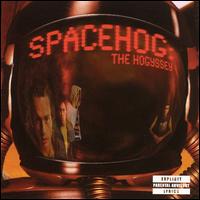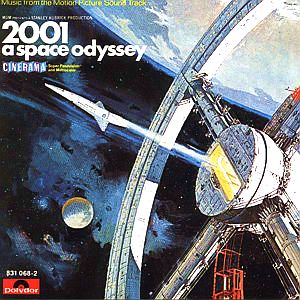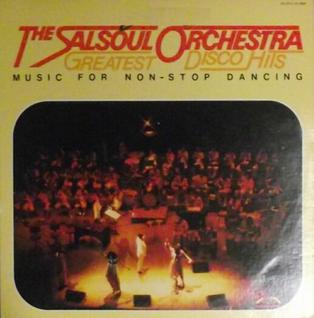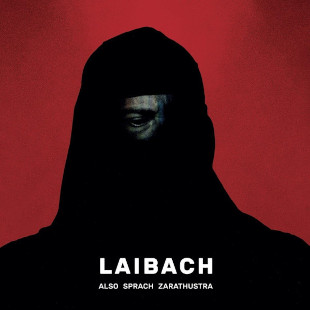
Thus Spoke Zarathustra: A Book for All and None, also translated as Thus Spake Zarathustra, is a work of philosophical fiction written by German philosopher Friedrich Nietzsche between 1883 and 1885. The protagonist is nominally the historical Zoroaster, but, besides a handful of sentences, Nietzsche is not concerned with a specific resemblance. Much of the book consists of discourses by Zarathustra on a wide variety of subjects, most of which end with the refrain, "Thus spoke Zarathustra." The character of Zarathustra first appeared in Nietzsche's earlier book The Gay Science.
Dawn is the time that marks the beginning of the twilight before sunrise.

The Hogyssey is the third album from rock band Spacehog.
The Portsmouth Sinfonia was an English orchestra founded by a group of students at the Portsmouth School of Art in 1970. The Sinfonia was generally open to anyone and ended up drawing players who were either people without musical training or, if they were musicians, ones that chose to play an instrument that was entirely new to them. Among the founding members was one of their teachers, English composer Gavin Bryars. The orchestra started as a one-off, tongue-in-cheek performance art ensemble but became a cultural phenomenon over the following 10 years, with concerts, record albums, a film and a hit single. They last performed publicly in 1979.

Also sprach Zarathustra, Op. 30 is a tone poem by Richard Strauss, composed in 1896 and inspired by Friedrich Nietzsche's philosophical 1883–1885 novel Thus Spoke Zarathustra. The composer conducted its first performance on 27 November 1896 in Frankfurt. A typical performance lasts half an hour.

Rasassination is the second album by rapper Ras Kass. It was released on September 22, 1998 by PatchWerk. It peaked at #63 on Billboard 200 and #11 on the Top R&B/Hip-Hop Albums. One charting single was released "Ghetto Fabulous" featuring Dr. Dre and Mack 10. The album is no longer in print. "Interview with a Vampire" is considered an underground classic and one of his best songs.
Also sprach Zarathustra is an 1896 tone poem by Richard Strauss.

Only Hits is an album by The Ventures. It was released as a double LP in 1973. It was also released in Quadraphonic sound on a double 8-track tape set.
Yuuko Ishibashi is a Japanese singer, born April 3, 1980 in Tokyo, with a four octave vocal range. She is most well known for her vocal performances in Gust-produced video games such as the Ar tonelico series and Atelier Iris 3: Grand Phantasm. She has also performed in various Japanese television advertisements and events, theater, and children's programmes. Her debut album Haruka naru Toki no Utagoe was released January 2008.
Kossuth, Sz. 21, BB. 31, DD. 75a is a symphonic poem composed by Béla Bartók inspired by the Hungarian politician Lajos Kossuth.

Prelude is the eighth studio album by Brazilian keyboardist Eumir Deodato, released in 1973. With the signature track "Also Sprach Zarathustra (2001)", Prelude would become the most successful recording for Deodato and CTI Records.
The Xenosaga (ゼノサーガ) series is a series of science fiction role-playing video games developed by Monolith Soft and published by Namco Bandai on the PlayStation 2. The series began with the 2002 release of Episode I: Der Wille zur Macht, which was followed in 2004 by Episode II: Jenseits von Gut und Böse and in 2006 by Episode III: Also sprach Zarathustra. The music of Xenosaga includes the soundtracks to all three chapters, as well as the music for its spin-off media. These include Xenosaga Freaks, a set of minigames set between the first two chapters, Xenosaga I & II, a Nintendo DS remake of the first two chapters, and Xenosaga: The Animation, an anime series covering the events of the first game. Episode I was composed by Yasunori Mitsuda, Episode II was split between Yuki Kajiura and Shinji Hosoe, and Episode III was composed by Kajiura alone. Xenosaga Freaks reused some of the music of Episode I by Mitsuda while also including new work by Shinji Hosoe, Ayako Saso, Masashi Yano, Keiichi Okabe, Satoru Kōsaki, and Hiroshi Okubo, while Xenosaga I & II and Xenosaga: The Animation used new pieces composed by Kousuke Yamashita.

"Also Sprach Zarathustra (2001)" is an instrumental by Brazilian musician Eumir Deodato, from his 1973 album Prelude. It is a heavily jazz-funk styled rendition of the introduction from the Richard Strauss composition Also sprach Zarathustra.

2001: A Space Odyssey is a soundtrack album to the film of the same name, released in 1968. The soundtrack is known for its use of many classical and orchestral pieces, and credited for giving many classical pieces resurgences in popularity, such as Johann Strauss II's 1866 Blue Danube Waltz, Richard Strauss' symphonic poem Also sprach Zarathustra, and György Ligeti's Atmosphères. The soundtrack has been re-issued multiple times, including a digitally remastered version in 1996.

Greatest Disco Hits: Music for Non-Stop Dancing is an album released by the Salsoul Orchestra in 1978 on Salsoul Records. It is noted for its pioneering use of slip-cueing, known at the time as “disco blending,” a phrase coined by Walter Gibbons.

Dionysian Dithyrambs is a collection of nine poems written in second half of 1888 by Friedrich Nietzsche under the pen name of Dionysos.
Also sprach Zarathustra is the oil painting cycle by Lena Hades painted from 1995 to 1997 and inspired by Friedrich Nietzsche's philosophical novel of the same name. The painter created her first painting on December 1995 in Moscow. The Thus Spake Zarathustra cycle is a series of twenty-eight oil paintings made by the artist from 1995 to 1997 and thirty graphic works made in 2009. Twenty-four of the paintings depict so-called round-headed little men and their struggles in life. The remaining four depict Zarathustra himself, his eagle and serpent. Six paintings of the series were purchased by the Moscow Museum of Modern Art and by some important private collectors. The oil painting Also Sprach Zarathustra series was exhibited several times — including the exhibition at the Institute of Philosophy of the Russian Academy of Sciences in 1997 and at the First Moscow Biennale of contemporary art in 2005.
In music, Op. 30 stands for Opus number 30. Compositions that are assigned this number include:

Also Sprach Zarathustra is an album by NSK industrial group Laibach originally produced for a theatrical production of Thus Spoke Zarathustra, based on Friedrich Nietzsche’s philosophical novel of the same name, by director Matjaz Berger, which premiered in March 2016. The single "Vor Sonnen-Aufgang" was released from the album.










